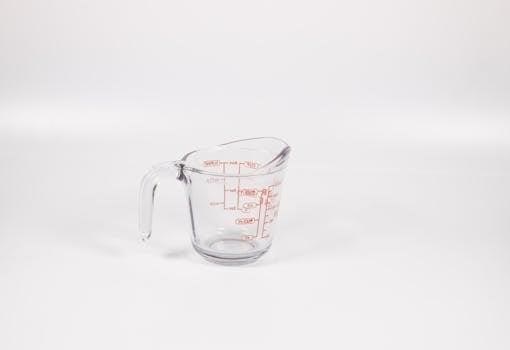The Childhood Autism Rating Scale, Second Edition (CARS-2) is a widely used, revised tool. It assesses autism spectrum disorder (ASD) symptoms across fifteen behavioral areas. CARS-2 helps professionals evaluate and identify autism in children, offering quantifiable ratings.
What is the CARS-2?
The CARS-2, or Childhood Autism Rating Scale, Second Edition, is a behavioral rating scale designed to aid in the identification of autism spectrum disorder (ASD) in children. It’s an updated version of the original CARS, expanding its clinical value and providing a more comprehensive evaluation of ASD. The scale is completed by trained professionals, who observe and rate a child’s behavior across 15 different areas, assigning scores based on the intensity, frequency, peculiarity and duration of the behaviors observed. The CARS-2 helps distinguish between autistic children and those with other developmental disabilities. It’s a useful instrument for assessing severity of symptoms.
Purpose of the CARS-2
The CARS-2 aims to identify autism in children and determine symptom severity. It differentiates autism from other developmental disabilities. The scale provides quantifiable ratings based on direct behavioral observations by trained professionals.
Identifying Autism and Severity
The CARS-2 is designed to identify the presence of autism spectrum disorder (ASD) in children. It helps to distinguish between children with autism and those with other developmental disabilities. The tool assesses the severity of autism symptoms by evaluating behaviors across fifteen different domains. The rating scale allows professionals to determine if a child’s behavior is consistent with mild-to-moderate or severe autism. This crucial distinction aids in understanding a child’s specific needs. By quantifying observed behaviors, the CARS-2 provides a structured approach to diagnosing and understanding the varying degrees of autism.
Versions of the CARS-2
The CARS-2 has two main versions⁚ the Standard Version (CARS2-ST) and the High-Functioning Version (CARS2-HF). These versions cater to different developmental and cognitive levels of individuals being assessed for autism.
Standard Version (CARS2-ST)
The CARS2-ST, is equivalent to the original CARS and is designed for individuals younger than six years old, or those with communication difficulties and below-average IQs. This version uses 15 items to assess behavior. It focuses on areas such as social interaction, communication, and repetitive behaviors. Clinicians observe the child’s actions and assign scores based on the behavior’s frequency, intensity, peculiarity and duration. It helps distinguish autism from other developmental delays, providing a quantifiable assessment.
High-Functioning Version (CARS2-HF)
The CARS2-HF is an alternative version designed for verbally fluent individuals aged six and older. It’s used with those who have IQ scores above 80. The 15 items have been modified to reflect characteristics of high-functioning autism and Asperger’s Syndrome. It assesses areas such as social interaction and communication with a focus on subtle deficits. Clinicians rate the individual on a four-point scale, considering frequency, intensity, peculiarity, and duration of behaviors. This version helps in diagnosing autism in individuals with higher cognitive abilities.

CARS-2 Components
The CARS-2 includes two rating scales completed by clinicians⁚ the Standard (CARS2-ST) and High-Functioning (CARS2-HF) versions. It also utilizes a Parent/Caregiver Questionnaire (CARS2-QPC) to gather additional information for assessment purposes.
Parent/Caregiver Questionnaire (CARS2-QPC)
The CARS2-QPC is an unscored questionnaire completed by the parent or caregiver of the individual being assessed. Its purpose is to gather information for clinicians to base their CARS2-ST or CARS2-HF ratings. This questionnaire often serves as the framework for a follow-up interview, allowing clinicians to clarify and interpret the provided responses. The CARS2-QPC covers areas such as early development, social, emotional, and communication skills, repetitive behaviors, play and routines, and unusual sensory interests. It is a crucial part of the assessment process.
Scoring and Interpretation
The CARS-2 uses a 15-item rating scale, with scores from one to four per item. Higher scores indicate more atypical behavior. These scores are summed, yielding a total raw score for interpretation.
15 Item Rating Scale and Scoring
The CARS-2 employs a 15-item rating scale, where each item assesses various aspects of behavior relevant to autism spectrum disorder. Raters assign a score from 1 to 4 for each item, reflecting the severity of observed behaviors. A score of 1 indicates behavior is within typical limits; A score of 2 suggests slightly atypical behaviors. A score of 3 indicates moderately atypical behaviors, and a score of 4 shows severely atypical behaviors. These ratings are based on the frequency, intensity, peculiarity, and duration of the behavior; The scores are then summed for further analysis and interpretation.
Cut-off Scores and Interpretation
The CARS-2 uses cut-off scores to help determine the likelihood of autism spectrum disorder. The total raw score, derived from summing the 15-item ratings, is interpreted using these cut-offs. Higher total scores indicate a higher probability of autism and the severity of symptoms. Specific cut-off points help distinguish between non-autism, mild-to-moderate autism, and severe autism. The CARS-2 also provides standard scores and percentile ranks based on a clinical sample. These scores aid clinicians in understanding the individual’s performance relative to others with ASD, giving detailed interpretation guidelines.

Administration of the CARS-2
The CARS-2 is typically administered by trained professionals. This includes clinicians, psychologists, and developmental pediatricians. These professionals evaluate a child’s behavior in various domains related to autism.
Who Administers the CARS-2?
The CARS-2 is designed to be administered by trained professionals who have expertise in autism spectrum disorder (ASD) assessment. This typically includes clinical psychologists, developmental pediatricians, psychiatrists, and other qualified clinicians. These professionals possess the necessary background to observe and interpret the behaviors of children, ensuring accurate and reliable scoring. Their expertise enables them to effectively use the CARS-2 to distinguish autism from other developmental disabilities. They also provide valuable insights during the diagnostic process. Training on the CARS-2 is often recommended to guarantee accurate administration and interpretation of the results.

CARS-2 Applications
The CARS-2 is primarily used to identify autism in children and differentiate it from other developmental disabilities. It helps determine the severity of autism symptoms, aiding in diagnosis and intervention planning.
Distinguishing Autism from Other Developmental Disabilities
The CARS-2 is valuable in differentiating autism from other developmental conditions. It focuses on specific behaviors characteristic of autism, such as social interaction deficits and repetitive behaviors. This allows clinicians to distinguish autism from intellectual disabilities or other disorders with overlapping symptoms. The CARS-2’s structured format and quantifiable ratings provide a clear comparison of behaviors. This allows it to aid in making a more accurate differential diagnosis. The scale’s items are designed to assess the unique aspects of autism, thus enhancing its utility in this crucial diagnostic process.

Benefits of Using the CARS-2
The CARS-2 offers quantifiable, observation-based ratings, aiding in objective assessment of behaviors. It’s effective in distinguishing autism from other disabilities, providing structured information for diagnosis and intervention planning.
Quantifiable and Observation-Based Ratings
The CARS-2 stands out due to its emphasis on quantifiable data derived from direct behavioral observation. This method allows for a more objective assessment, moving beyond subjective interpretations. Each of the 15 items is scored on a 4-point scale, reflecting the frequency, intensity, peculiarity, and duration of observed behaviors. This structured approach facilitates a more reliable analysis. The rating scale also provides a framework for clinicians to document their observations and justify their ratings. These quantifiable scores aid in tracking progress and informing intervention strategies;
CARS-2 Availability
CARS-2 materials, including manuals, rating booklets, and questionnaires, are available through Western Psychological Services (WPS). These materials can be accessed online or through printed versions for professional use.
Accessing CARS-2 Materials and Manuals
The CARS-2 materials, including the Standard Version (CARS2-ST), High-Functioning Version (CARS2-HF), and Parent/Caregiver Questionnaire (CARS2-QPC), along with the comprehensive manual, are primarily accessible through Western Psychological Services (WPS). Professionals can purchase these resources in both print and digital formats. The WPS website offers options to buy individual components or complete kits. Additionally, online access through the WPS Online Evaluation System is available, offering convenience and digital versions of the print materials. The manuals provide guidelines for score interpretation, intervention suggestions, and case examples, aiding professionals in utilizing the CARS-2 effectively;

